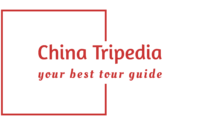Basha Miao Village (岜沙苗寨), locally known as Biasha, is perched on a mountainside at an elevation of 550 meters, overlooking the Duoliu River in Congjiang County, Guizhou Province. Home to over 2,500 Miao people, Basha has preserved ancient customs and traditions due to its remote location. The villagers are distinctive for still wearing traditional attire, carrying firearms like rifles (with special approval from law enforcement), using machetes for hair-cutting rituals, and practicing rituals like worshiping ancient trees.
Self-proclaimed as a branch of the ancient Chiyou tribe, Basha traces its lineage back to the third son of Chiyou, a legendary figure in Miao ancestry. According to folklore, after Chiyou’s defeat by the Yellow Emperor, his descendants, including the people of Basha, embarked on a millennium-long migration to the southwest. Basha Miao Village, proud of its roots, claims to be the vanguard of this ancient migration- the forefront of the Nine Li tribe, an integral part of the great historical exodus.
Table of Contents
- Basic Information
- Location and Transportation
- Highlights of Basha Miao Village
- Vlog about Basha Miao Village
- Other Attractions in Congjiang County
Basic Information
| Estimated Length of Tour | 2 hours |
| Ticket Price | 60 RMB (including admission and shuttle bus) |
| Opening Hours | 8.00 – 18.00 |
Location and Transportation
Basha Miao Village is nestled amidst the enchanting landscapes of the Moon Mountain at the southern foothills, approximately 6 kilometers south of the town center of Congjiang County in Qiandongnan Miao and Dong Autonomous Prefecture, Guizhou Province, China. This remarkable Miao ethnic enclave is set within a vast and seemingly endless forest, composed of five distinct villages.
Basha Miao Village is located just 7 kilometers away from Congjiang County. Visitors can reach the village by taking a high-speed train to Congjiang Station, followed by a bus to the central area of Congjiang County. From there, they can opt for a taxi to cover the final 7-kilometer stretch to Basha Miao Village.
Highlights of Basha Miao Village
Unique Attire and Hairstyles

Basha men, valuing strength and prowess, don a traditional ensemble comprising handwoven collarless shirts, copper-buttoned blue cloth jackets, straight-cut trousers, and blue cloth leggings. They accessorize with a waist knife and carry rifles on their shoulders, reflecting their emphasis on hunting and fishing in the mountains and rivers. Their physical strength is evident in their adept hunting and farming skills, and they take pride in distinctive markers of their attire and physique. The most significant gender marker is the unique hairstyle – the “hugun” in the local Miao language. Men shave off most of the hair around their heads, leaving only a central coiled bun, maintaining this hairstyle throughout their lives.
Coming-of-Age Ceremony

A pivotal tradition in Basha is the coming-of-age ceremony, which every boy undergoes between the ages of 7 and 15. On this day, the young men invite peers to join them in activities such as bird hunting, catching mud loaches in the fields, and fishing in mountain streams. The more successful they are in these endeavors, the more it signifies their potential and promising future. Following the outdoor activities, the young men gather at their homes to drink and feast on the catch. The ceremony concludes with the family’s appointed ritualist, the “guishi,” shaving the young man’s head and styling the “hugun.” This signifies the transition to an independent stage of life, marked by carrying a rifle crafted by his father.
Diverse Festivals

Basha Miao Village celebrates several unique festivals:
Yingshanhong Festival (March 3rd in the lunar calendar): This festival marks the beginning of spring and the sowing season. It is also considered a romantic time, celebrated over three consecutive days.
Chixian Festival (June 12th in the lunar calendar): With rice fields planted and fish plentiful, this festival involves swinging on straw swings. Young people gather to swing, facing the sun, for five consecutive days, creating a lively atmosphere with 40-50 swings simultaneously in the forest.
Lusheng Festival (November 19th in the lunar calendar): Celebrated as the harvest season, this festival involves activities like slaughtering and bullfighting. Participants wear traditional attire, gather at the Lusheng hall, play the Lusheng instrument, dance, and engage in Lusheng competitions.




